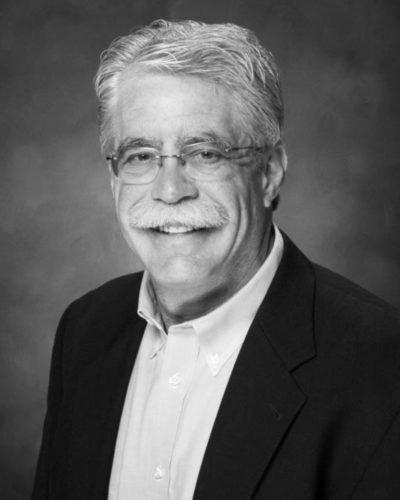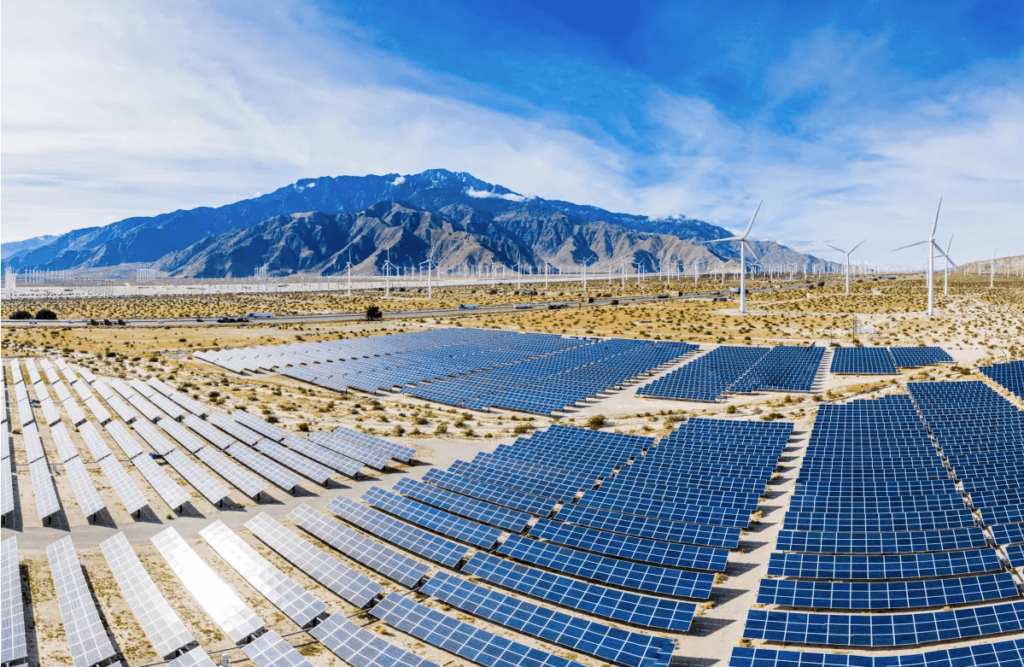[00:00:00] James Lawler: Welcome. I’m James Lawler from Climate Now, and today I have the pleasure of being joined by Roger Aines from Lawrence Livermore National Lab and Amory Lovins, who is founder and chairman emeritus of RMI, formally the Rocky Mountain Institute. We are joined in the room today by a live in-person group of staff, scientists, and others from the Lawrence Livermore National Lab, which is a Department of Energy laboratory focused on science and research in the national interest.
[00:00:35] James Lawler: So, the topic of conversation today is the energy efficiency resource. The idea is that energy efficiency can itself be considered a source of energy in the sense that, as we think about future energy demand, we should consider that some portion of that demand will be offset or met, if you like, by improvements in engineering, such that less energy is required.
[00:00:59] James Lawler: We’re going to delve into exactly how big that energy efficiency resource might be and how we can access it. Roger, I’d love to start with you. Sometimes historical reference can provide some perspective, so I wonder if you might be able to describe for us the global energy demand curve over the last, say, 50 years. How much energy has the world required over that period of time and what does the shape of that curve look like?
[00:01:27] Roger Aines: Well, I’ll try not to throw a bunch of complicated units in here and just say, over that 50 years, our energy use has increased about 60%, something like that, in round numbers. And that growth has been actually remarkably slower than any of the other metrics you might use: population, GDP, and so on. So, what we’re seeing is that we’re using energy more and more efficiently, which is of course the topic here.
[00:02:00] James Lawler: What is that curve projected to look like moving forward? Is the degree to which we are using and saving energy thought to be sort of similar to how we’ve managed to save over time in the past, or not?
[00:02:16] Roger Aines: I think that’s very much an open question, and that one’s in our hands to change. I think the trend has been to get more and more efficient, and I would point to what we’ve done in California, which is every year for the last 30 years or so, we’ve gotten more and more efficient, so we use less energy per person, less per GDP. The overall demands in the world, though, are increasing as more of the world achieves the same standard of living that we have here, so we have to balance those two things. And the struggle is how fast can we replace old technologies with new ones that are more efficient?
[00:02:58] James Lawler: I want to come back to that, but Roger, I’d like to ask you a question that might help us understand why we’re even talking about this, because if we think about renewables, solar, wind, et cetera, these don’t release any emissions. They’re emissions free, you know, carbon neutral. Why do we even care about efficiency in the first place?
[00:03:25] Roger Aines: This is a thing that happens as we think about decarbonizing and everyone wants to use renewable energy to decarbonize. That’s a very straightforward thing, and I’m frankly glad that legislators and policymakers understand that concept.
[00:03:39] Roger Aines: But the amount of renewable energy that is available to the world is fundamentally limited by things like land use. And we have already seen that right here in our community in Livermore. There’s a big debate over solar power that is going to use land that is currently in agricultural use. And that kind of thing is going to put limits on how much renewable energy we can build, and it should put limits on it. We should live in a world that we want to live in, not one that’s covered by solar panels or, you know, other things. The benefit of efficiency here is that it basically reduces the amount of those new resources that we have to build and put in place. Those new resources are just fundamentally more land use intensive than the things that we have today, so we always have to keep in mind using them efficiently.
[00:04:33] James Lawler: And what are some of the other reasons that we might care about efficiency beyond land use?
[00:04:41] Roger Aines: Well, I’ll just start with the amount of money that’s at hand. There’s an enormous amount of change that’s required in order to have a clean climate, and we need to figure out where we’re going to spend that money and how much bang we’re going to get for the buck.
[00:04:56] Roger Aines: Unfortunately, we don’t get to make those choices from a global perspective. The IPCC doesn’t decide how the world’s going to spend money, but as scientists and technologists, we have to make those options tractable to businesses and individuals and cities, and people who are actually going to buy these things.
[00:05:16] Roger Aines: Efficiency always looks good when you can get it down to the actual buyer. Buyers like efficiency. You go around our city here and you’re going to find all the street lamps are LEDs and all the street lights, the traffic lights are all LED-based. Why is that? It saves a lot of electricity, so I think one of the big challenges for us is to get that message out to people.
[00:05:40] James Lawler: Amory, do you have anything to add to that?
[00:05:43] Amory Lovins: I think another important dimension here is that efficient energy use typically gives you not just the same service, but a better quality of service. An efficient house is more comfortable, more healthful, more pleasant to be in. An efficient office, where you can see what you’re doing because of the lighting design, hear yourself think because there’s no mechanical noise, lets in daylight. That’s good for your physiology, is going to make you about 6 to 16% more productive, which is extraordinarily important for the economics of the business. An efficient car will take you longer on fewer batteries, which means mining less battery material.
[00:06:37] Amory Lovins: An efficient factory will produce higher quality more reliably and more consistently. Every use in every sector, there’s a case like this. The service quality improves, and many people actually care even more about that than about saving money.
[00:06:55] Amory Lovins: James, we have a question or comment from down the table.
[00:06:58] Unknown: — in addition to finances, — and on-demand issues.
[00:07:06] Unknown: I think an increase in efficiency also adds the component of security. The hub-and-spoke delivery system for energy has numerous well written-up vulnerabilities, and as you increase efficiencies, you can move away from that hub-and-spoke on-demand delivery to onsite delivery, and get away from system vulnerabilities, for example, like the U.S. grid has today.
[00:07:27] Amory Lovins: That’s a very important point because 98 or 99% of power failures in the U.S. start in the grid. So, if your solar power is on your roof, there’s no grid between it and the effect you’re running, and that means your liability goes up by maybe a hundred-fold.
[00:07:45] Amory Lovins: That means, in turn, that efficiency becomes even more important because it lets you fit a more affordable, and fittable on your roof, solar rig that you can build easier, faster, you don’t need to finance it, perhaps, because you can afford just to buy it. It’s enough because you’re using the electricity very efficiently.
[00:08:15] James Lawler: Because most people don’t think of it that way. Most people think of efficiency as something that gets more and more expensive, you know, the more of it you do, and as you do that, you’re making little tweaks to whatever device you’re creating or whatever structure you’re building, and it’s harder and harder to do, but Amory, I think you have a very interesting framework or a phrase that captures the concept. You’ve described it to me as tunneling through the cost barrier, which I think is such a great way to frame it and maybe might make people think about efficiency in a brand new light. Can you describe that concept?
[00:08:57] Amory Lovins: I live in a very cold place. It used to go below minus 40 pretty reliably every December.
[00:09:07] Amory Lovins: I’m way up in the Rocky Mountains near Aspen, but my house doesn’t do any combustion, it has no heating system. Why? Because it’s super insulated, very thick insulation in the walls and roof, and windows that insulate 16 or even 22 sheets of glass, look like two, costs less than three. How could I afford all that stuff? Well, it got rid of the heating system. Now, if you look at the cost of saving the next unit of energy versus how much you save, as you save more by adding insulation, it gets more and more expensive because each bit of installation you add leaves less energy to be saved by the next unit of insulation.
[00:09:51] Amory Lovins: Normally, you get to the point where if you added more insulation, it wouldn’t save enough energy to pay for itself, so you stop. We went to about three times that level, so we also got rid of the furnace, stubs, fans, pipe, pumps, wires, controls, fuel supply arrangements, and therefore the cost of the heating system went to zero.
[00:10:15] Amory Lovins: The cost of the whole building actually went down by about $1,100 bucks, so why should we get there the long way around to save 99% of the space heating energy at a cost of minus $1,100, when we could just tunnel through the cross barrier, go straight there by asking up front, is there a sense of a way to design this building so it doesn’t need heating, and you can do the same with cooling, even in steamy tropics it works fine.
[00:10:46] Amory Lovins: By designing the building or vehicle or factory as a whole system, for many benefits, you get to that destination of shrinking or even eliminating heating, cooling, and other supply systems, and using that avoided construction costs to pay for the efficiency that got rid of that stuff.
[00:11:08] Amory Lovins: The whole system design, and we call it integrative design, is the key to making energy efficiency as a resource several times bigger than we thought it could be, yet at lower cost and often with increasing returns.
[00:11:22] James Lawler: I think people are often surprised by the power of efficiency and integrative design, and it kind of sneaks up on you and suddenly it’s achieved phenomenal results. There’s a very interesting example, I think, from near the beginning of your career, Amory, when you were raising the flag of efficiency and the power of it, and you were roundly criticized and derided for doing so.
[00:11:52] James Lawler: I would love for you to tell that story, if you would, of what you were saying in your paper in Foreign Affairs in 1976, and why that rubs so many people the wrong way. Let’s start there, and then I want to get to how the world actually turned out.
[00:12:08] Amory Lovins: In 1975, an idea took shape on a Shell group planning blackboard in London that turned into a couple of graphs for how the energies system, say, in the United States, could evolve over the next half century. One in which we think the problem is where to get more energy, more of any kind from any source at any price, the curves always go up towards the upper right, and another in which we start by asking, what are we trying to do with the energy?
[00:12:46] Amory Lovins: We don’t just want lumps of coal or raw kilowatt hours and barrels and sticky black goo, we’re trying to get services like hot showers, cold beer, baked bread, smelted aluminum, mobility, comfort. For each of those, let’s ask how much energy, from what source of what scale would do the job in the cheapest way. It came to be called the ‘end use least cost approach,’ and it turned out to give much better foresight. These two views, which I called the hard and soft energy paths, got into quite a tangle because when I laid out that view of the world, it was very threatening to the supply industries.
[00:13:33] Amory Lovins: I was invading the perimeter of their belief system and running around inside, showing that according to their numbers and their methods, what they wanted to do would cost more and work worse than what I was suggesting, so there was a huge debate.
[00:13:51] Amory Lovins: There’s a yay-thick congressional hearing record and thousands of pages of fine print. Anyway, by the end of the year or so, the critics were not doing very well because I’d done my homework, and the chief economist of Atlantic Richfield might’ve brought that phase to a close by saying, ‘well, I, for one don’t care if Lovins is only half right, that would be better performance than I’ve seen from the rest of them, and then the companies that have been our critics started hiring us to help them do what they were starting to realize could make sense and make a lot of money.
[00:14:29] Amory Lovins: It turned out that that soft energy path, although it was not met as a forecast, was within one percent or so of how energy demand actually turned out by 2000, it was the only accurate forecast, not a forecast, but vision in the literature, and the folks that forecast demand 50 or 100 percent higher, that’s everybody else. They were using better models, the best forecasting tools of the time, but they were really steering by looking in the rear-view mirror, not through the windshield.
[00:15:08] James Lawler: Amory, to what degree are we in the same boat today as we were then? Is buying more energy efficiency today, is that something that we should be doing a lot more of? Is there a lot more potential for that than we’re giving credit for, than the models suggest, for example?
[00:15:25] Amory Lovins: Yes. The efficiency potential is now much bigger than it ued to be. The efficiency is not a depletable resource like an oil reservoir or a body, you know, a collection of atoms. The barriers to realizing how big efficiency are really between our ears.
[00:15:48] Amory Lovins: We think of efficiency often as binary. Is your house efficient or not, like, does your house have a garage or not? It’s not like that. It’s a continuous spectrum, and your house can get more and more efficient until actually it uses less energy than it produces, so-called net positive buildings that are now becoming common.
[00:16:10] Amory Lovins: I think there are a lot of conceptual barriers that come from an older era of resources that are really getting in the way of using our energy resources as productively as we should.
[00:16:28] James Lawler: Can you just expand on that? What is the old mindset? When it comes to use of resources?
[00:16:33] Amory Lovins: The old mindset is you dig up a resource and burn it, or treated into making something, but many of our resources now are ideas, like design, how you fit technologies together in the right proportions and sequence and timing to get the result you want. To give you a simple example, over half the world’s electricity runs motors, half their power runs pumps and fans that move liquids or gasses through pipes and ducts.
[00:17:18] Amory Lovins: If you make the pipes and ducts fat, short, and straight, instead of skinny, long, and crooked, the standard method, they have a lot less friction and you end up saving, if everybody did this, about a fifth of the world’s electricity, or half the coal-fired electricity. You get your money back in under a year fixing old stuff, or instantly and building new stuff.
[00:17:44] Amory Lovins: So, why isn’t this approach of minimizing friction and moving fluids around in any standard engineering textbook, or government study, industry forecast, or climate model? Well, because it’s not a technology. Design is a process of translating intention into artifact of effect, and it’s definitely not a widget or a device. It’s how you do something.
[00:18:25] James Lawler: Once you start to improve efficiency of elements of a system, you see these cascading, accelerating benefits more broadly in the system. So, if you have a certain part of, say, a car, and if one part of a system becomes more efficient, how does that improve maybe other parts of the system, or allow you to use less materials?
[00:18:49] Amory Lovins: Most of the energy needed to move a car is caused by its weight. If I happened to drive a car, made of very lightweight carbon fiber, which was supposedly too expensive to make a car out of, unless it’s a handmade formula. One race car costs a million bucks. But it turns out that this car, of which a quarter million have been sold, is very popular and sells at a competitive price. Why? Well, first of all, because you pay for the carbon fiber by needing fewer batteries to move less weight around, but also making the car gets radically simpler. It takes a third of the normal amount of capital and water, it takes half the usual amount of energy, space, and time, and together, those benefits pay for the carbon fiber.
[00:19:45] Amory Lovins: But unless you looked at the whole car, you wouldn’t realize that, and indeed, most people in the car business still think of cost per pound, not cost per car, which is the way you buy the car. You don’t care if some of it costs more per pound, if that makes other parts of it smaller, cheaper, or disappear.
[00:20:12] Amory Lovins: And indeed, when you start making the car very efficient, it takes so little power to move it, that you would use a private propulsion system that doesn’t need, let’s see, what do you get rid of, axles differentials, clutch, flywheel transmission, about eight or nine things go away, and each of them makes the car lighter, but when you make it lighter, you need less strength in the structure, less suspension to support it, less brakes to stop it, then that in turn makes it lighter. You go around the spiral.
[00:20:57] Amory Lovins: I wonder, Roger, Amory, to what degree do you believe that current models that forecast what’s possible with energy improvements, energy efficiency, take into account the potential of these accelerating loops that Amory’s describing? It seems to me from what you were just saying, Amory, these could be quite powerful dynamics, and have been powerful dynamics, and I just wonder, are we properly thinking about the potential there?
[00:21:32] Roger Aines: I think it’s a real challenge that’s given by the structure of the academic literature which requires proof, and in fact, requires a hierarchy of proof for any point that you want to make in a major journal.
[00:21:51] Roger Aines: In many cases, what we’re talking about here, things Amory and I are talking about, is just good engineering judgment. You look at them and you go, yeah, we could do that, but you don’t have a succession of multiple papers that prove that you can do it, and so, there isn’t a format really for this kind of good engineering judgment.
[00:22:12] Roger Aines: I’m not sure how to create one, but I do know that when you see what the IPCC reports for the UN, that is a real restriction on how they’re able to talk about things, because if it’s not in the peer reviewed literature, they are not permitted to consider it.
[00:22:28] George Burness: This is George Burness here, Director of Carbon Management Partnerships for Livermore Lab.
[00:22:32] George Burness: I have a question for both Amory and Roger, and I’d like to dwell on a phrase that Amory said a few minutes ago, our limitations are between our ears. There’s no doubt that efficiency has enormous potential, a lot of it is yet to be tapped. At the same time, this phrase ‘between our ears’ scares me because humans do not always have good information.
[00:22:59] George Burness: They do not always make rational decisions. They may even know that something is cheaper in the long run for them, but then because of entrenched views, habits, lack of awareness that there’s actually a choice involved. We’ve actually been much slower in adopting this and tapping into this enormous potential than we should be.
[00:23:19] George Burness: So, I wanted to ask, given the very significant barriers in tapping into this potential, do we not have an imperative, or would we not be well-advised to try and maximize that potential? Not just in efficiency, but in all other forms of climate mitigation, including finding ways to reverse the harm and remove CO2 from the atmosphere.
[00:23:43] Roger Aines: I think one of the really interesting things that has come out of the climate modeling community is this simple measure of net-zero. That if we don’t get to zero, we won’t achieve the climate outcomes we want. That then engenders a really interesting set of conversations around what can you do to get to zero? The thing I like about that is it allows everyone to participate. Everybody can say, ‘this is my favorite thing’ and I say, ‘good, go and make it happen,’ but I think that has never been present before. Never had a measure that we wanted to hit. It was always we want to do a little better or we’re going to spend a little less, and so now when we say zero is the target, and it’s the only acceptable target factor, we have to go below zero, now we can start to measure those things, add them together, and see how many of each we need.
[00:24:37] Roger Aines: And that’s something that we’ve done at the lab here, and we’ve looked at it and went, ‘oh crap, we need everything and then we need some more,’ and so I think that that’s going to, if we can keep propagating that idea that this zero target is really hard, and everybody needs to dig in and do it and add the things that are most important to them, or that they think they can contribute most, you know, that’s one of the things that Amory brings to this discussion, he contributes to the discussion about how important efficiency is.
[00:25:11] Roger Aines: That’s terrific because that is a major component of net-zero.
[00:25:17] Roger Aines: I think everything we can do and need to do has its own set of barriers and you get to choose only which kinds of barriers you prefer, and how you want to diversify your barrier portfolio, so you have a good chance that enough stuff will work.
[00:25:39] Amory Lovins: I would, however, caution about the notion that we need to do everything. There are engineered carbon removals is one of the things that deserves a modest amount of research to see if there was some wonderful idea nobody came up with that would make it more practical and affordable than it looks right now, but the more urgent climate problem is, the more we need to invest in things that are fast, cheap, and proven, rather than things that are slow, costly, and speculative because you’re, you can only spend a dollar on one thing at a time, and if you buy a lot of expensive stuff, you aren’t getting as much solution per dollar
[00:26:32] James Lawler: Last question.
[00:26:38] Unknown 2: —-, a geologist working on geologic carbon storage and carbon mineralization, so I guess no pun intended, but what’s the most efficient way to deploy efficiency, like if you could wave a magic wand, what are the three things you would do? Like should the government buy thousands of heat pumps and distribute them to low-income homes, are tax incentives the best way to do it, is it a combination of things, how do we actually unleash all this potential.
[00:27:02] Amory Lovins: You’re asking about policy tools. Let’s see, three things I would do. I would subsidize the entire energy system, so people can see what energy really costs and then decide how much is enough.
[00:27:19] Amory Lovins: I would enable, and if I can, require, always to save or supply energy compete fairly at honest prices, regardless of their type, technology, size, location, or ownership, that’s pretty much the opposite of the system we have now, and I would systematically bust barriers. I would go around hunting for where there is a policy, habit, practice, rule that gets in the way of using energy in a way that saves money, and I would try hard to exterminate it.
[00:28:05] Amory Lovins: So, that’s a different approach, I think, than what most people reach for. Do we use this or that policy instrument to do a particular thing that we already know about. I’m more getting at the process of how we make better choices.
[00:28:25] Roger Aines: I would ask every engineering school in the world to require classes so that people who actually make these decisions understand how to do these things. Every trade school should teach people how to install heat pumps. It’s a major issue, they’re going around in England, right now. They want to put in a lot of heat pumps, they can’t find enough people to do it. You know, there’s a lot of ways to kind of reach into the system in a kind of insidious, sneaky way and push it forward, and education is always an important one.
[00:29:01] Amory Lovins: We’re always in a race between education and catastrophe.
[00:29:08] James Lawler: That was a recording from a live podcast interview at the Lawrence Livermore National Lab with Amory Lovins, co-founder of RMI, and Roger Aines, Energy Program chief scientist at Lawrence Livermore National Lab.
[00:29:20] James Lawler: Now, that’s it for this episode of the Climate Now podcast. To check out other episodes, watch our videos, or read our Systems Thinking articles, visit climatenow.com. To get in touch, tweet us @weareclimatenow or email us at contact@climatenow.com. We hope you can join us for our next conversation.
[00:29:38] James Lawler: Climate Now is made possible in part by our science partners, like the Livermore Lab Foundation, the Livermore Lab Foundation supports climate research and carbon cleanup initiatives at the Lawrence Livermore National Lab, which is a Department of Energy Applied Science and Research Facility. More information on the foundation’s climate work can be found at livermorelabfoundation.org.







